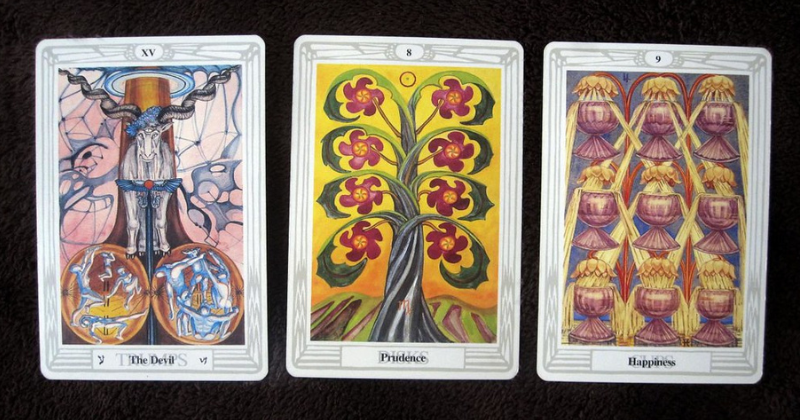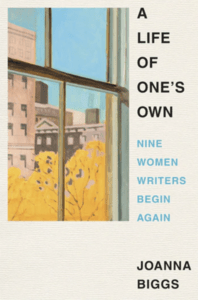
Boundaries Dissolve: Joanna Biggs on Reading Ferrante With Other Women
“Things fall apart, but the reader never loses hope.”
It felt as if everyone was reading Ferrante in the summer of 2015. Truly everyone. And we all wanted to talk about it. I felt guilty that I would be the one reviewing it, getting to have my say, when we were all reading it, all having our own experiences.
One of the appealing things about Ferrante was that the reading took place with others. It opened up conversations about the shapes a woman’s life should and could take. I’d left my marriage with an inkling that there were more possibilities than the ones I’d allowed myself, and I was desperate for conversations about those shapes, and searching for the people to have them with. The people who liked Ferrante were good people for these discussions.
When I separated from my husband, I lived in the flat we’d bought together while he lived elsewhere, first with a friend and then in a place that we paid for out of our joint account. I tried to fill it with a life of my own, but I could only manage it in fits and starts. Ferrante inspired one of my first attempts. I invited friends over to talk about her: a former correspondent in Rome for a national newspaper, a political historian, a philosopher, an editor on the magazine I worked at, a publicist for a publisher.
I made salad and ordered pizza, which I laid out in boxes on the floor; I mixed cocktails with the bottles of Campari and Martini Rosso I kept around then for late-night Americanos. From old emails, I can see it was August, and I remember the sash windows were open and we smoked inside. We smoked inside my former marital home and we talked about Ferrante. Not everyone knew each other, and so we did talk about the books: the addictions we had to them, the Lilas and Lenùs we knew and which one we feared we were, things we were starting to read about Milanese feminism and the Years of Lead in Italy.
The next morning, I took a photo of the coffee table in the living room: an iMac, five tarot cards—the World, Justice, the Fool, Judgment, and Death—laid out in a row, an empty packet of Marlboro menthols, a torn brown paper bag of flat white peaches, an empty plastic box of Ferrero Rocher with gold wrappers crumpled beside it, my eyeglasses, several bottles of wine and an abandoned glass of white, kitchen roll, a hairband, an empty pizza box, and a the now lost proof copy of The Story of the Lost Child, facedown. In the email chain the morning after, I told everyone that clearing up felt like dismantling a dream.
I didn’t yet know if I could make any of this stay, if I could make shapes and structures, friendships and partnerships that would hold.
I loved that evening. When everyone left I wrote an email to the man I was in love with then, the one who had gone to Wollstonecraft’s grave with me. “It was just fucking amazing,” I wrote to him. “At so many points I looked around the room and was so in love and awe. I want to write something glorious that captures this moment but I’m not at all sure I can do it. I was the quietest. I just put my Dictaphone on. There was so much talk about dissolving the boundaries of the self and I kept thinking of Badiou and what he says about love accommodating the viewpoint of the other and I just thought yes!”
It was a time when I was reaching out, beyond what I knew, crudely sometimes, childishly, hopefully, and trying to make a life I could be proud of, that would make sense to me. On evenings like that, my life did make sense to me. It was like a light turning on: yes, this is it, this is me, I have what I need. I didn’t yet know if I could make any of this stay, if I could make shapes and structures, friendships and partnerships that would hold.
I didn’t even know if you could keep this sort of energy; I’d never really felt it before. It seems to me now, 25 printings later, that I was forcing something into being as much as channeling it—I needed things to be different and I needed accomplices. I was falling in love in so many ways.
When I came to write my essay about Ferrante, in that empty flat, I didn’t need to close the study door and negotiate with my husband about the time I was coming to bed. I let myself write all over the house. I wrote at the kitchen table, and I typed sitting on the floor with my laptop on the seat of a chair. I took breaks where I played music loud and danced until I’d shaken the previous paragraph off. And I began with the idea that the Ferrante books were something I was living rather than something I was reading, listing all my friends and their reactions:
S. said she had got back in touch with an estranged friend to give her the first volume in the series; K. felt that, impossibly, embarrassingly even, the books captured how she’d gone about finding an intellectual identity for herself. And we couldn’t stop talking about the experience of reading them: S. read under sodium-orange streetlight while smoking a cigarette outside a pub, unable to break off to go in to the friends waiting inside; E. had a week of violent dreams after she finished the first volume; A. had sleepless night after sleepless night to finish them, and walked to work the next morning her head still full of Naples; B.—a man—couldn’t go on reading as he started to feel bad about being a man. I got so confused about what was real and what was not while reading Ferrante on a train that I kept on forgetting that I hadn’t missed my station.
I wanted my friends there with me in my writing, so I put them there, right at the beginning. Like Beauvoir, I wanted to be free, but I didn’t want to be alone. And I wanted what Ferrante was saying about life to get through to me too. I wasn’t sure then, I remember clearly, what she meant to say to us about dissolving boundaries. Did she mean that Lila, one of the main characters, was going mad when she felt that? What were the boundaries? Was I dissolving boundaries in what I was trying to do in my life? What was I trying to do?
One of the freeing, and also frustrating, things about Ferrante is that she doesn’t make public appearances, or tell us much more about herself than she was born in Naples. “Elena Ferrante” is a made-up name. As she got more famous, she gave interviews by email, and told us more about how she came to write, which books meant something to her, what she was trying to say, and why she wouldn’t come out of the shadows.
In 2015, all we had were her books and these interviews, but no one I knew was complaining that this wasn’t enough. We felt we knew her in all the important ways you can know a person: she is for the workers, not the bosses; she is against convention; she values women’s experience; she reads widely and deeply but prefers writing like a pane of glass.
As a reader, I was relieved not to have to contend with context, gossip, noise, but just to look at what she’d written. This choice of hers reminds us that we can do things the way we want to—that if someone tells us that this is the way things are done, we are still nevertheless allowed to say that we don’t want to do them that way. It reminds us that some privacy is needed when you are making something new.
The position she takes shows us that we too can be judged on what we say or what we do—we don’t need to take on what other people assume about us. We could tell all this from the novels before the Neapolitan quartet, which had the “dense expansiveness of a dream, or a nightmare, about them,” I wrote in 2015.
I loved what Ferrante said about her women. They “don’t submit,” Ferrante said in 2006. “Instead they fight, and they cope. They don’t win, but they simply come to an agreement with their own expectations and find new equilibriums.” There is a moment of such accommodation in The Days of Abandonment. Olga is stuck in the house with her two small children. One of them is sick and the other is the nurse:
The child had on his forehead three coins and in fact he was sleeping, breathing heavily.
“The coins are cool,” Ilaria explained. “They make the headache and fever go away.”
Every so often she removed one and put it in a glass of water, then dried it and placed it again on her brother’s forehead.
“When he wakes up he has to take an aspirin,” I said.
I loved this moment of care, twisted as it is, from The Days of Abandonment. Ferrante’s early novels are sometimes like parables, offering new ways of living, new solutions. Things fall apart, but the reader never loses hope that the strange experimental period is the prelude to some sort of new balance. I wanted to believe that this is what I was doing in my own life, even when it felt chaotic, and I was buying fresh packs of cotton knickers instead of washing the ones I owned.
__________________________________

Adapted from A Life of One’s Own: Nine Women Writers Begin Again by Joanna Biggs. Copyright © 2023 by Joanna Biggs. Excerpted by permission of Ecco, an imprint of HarperCollins Publishers.
Joanna Biggs
Joanna Biggs is an editor at Harper’s Magazine. Previously an editor at the London Review of Books, she has written for the New Yorker, the Nation, the Financial Times, and The Guardian, among other places. In 2017 she cofounded Silver Press, a London based feminist publishing house. She lives in New York.



















